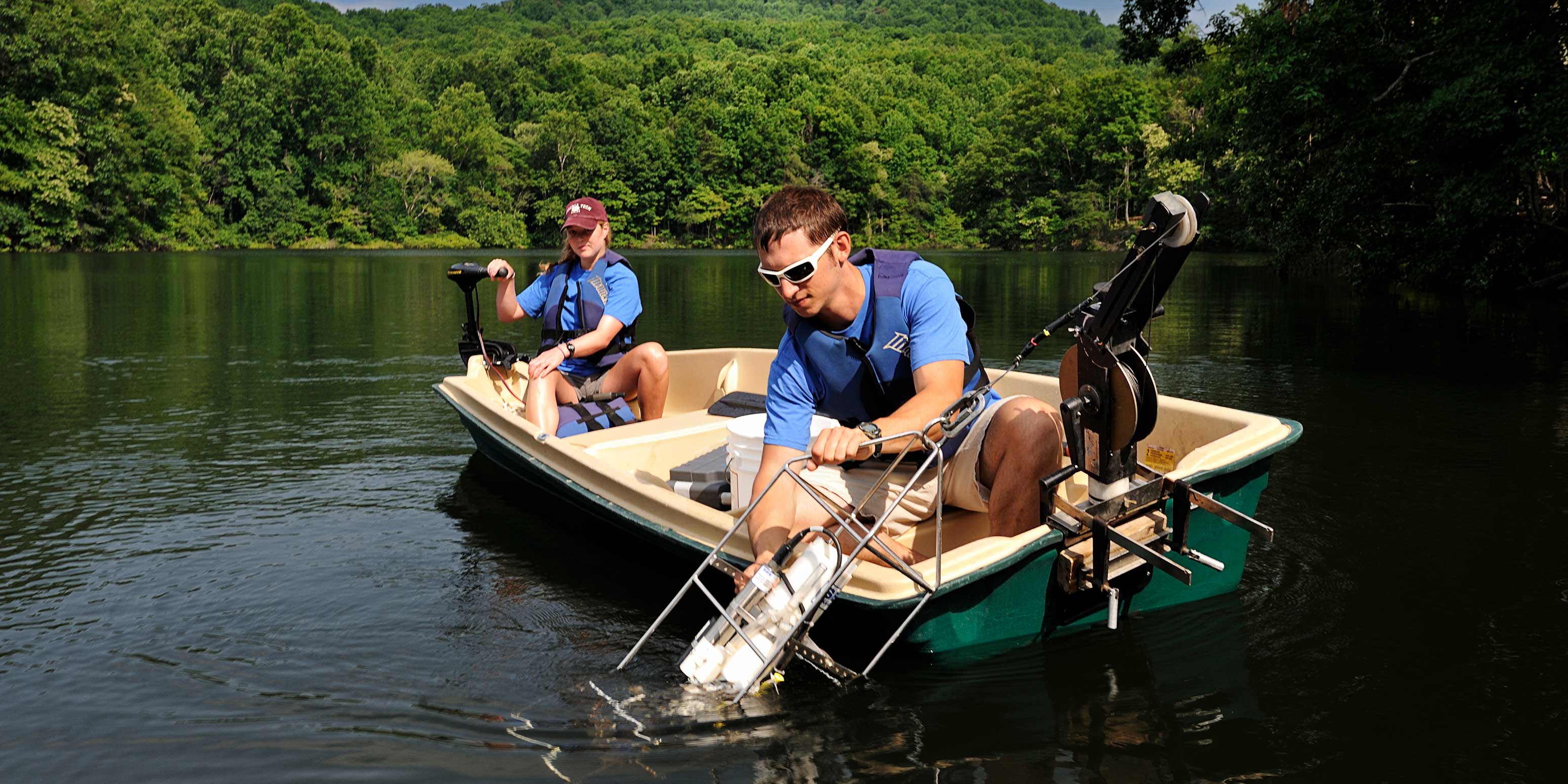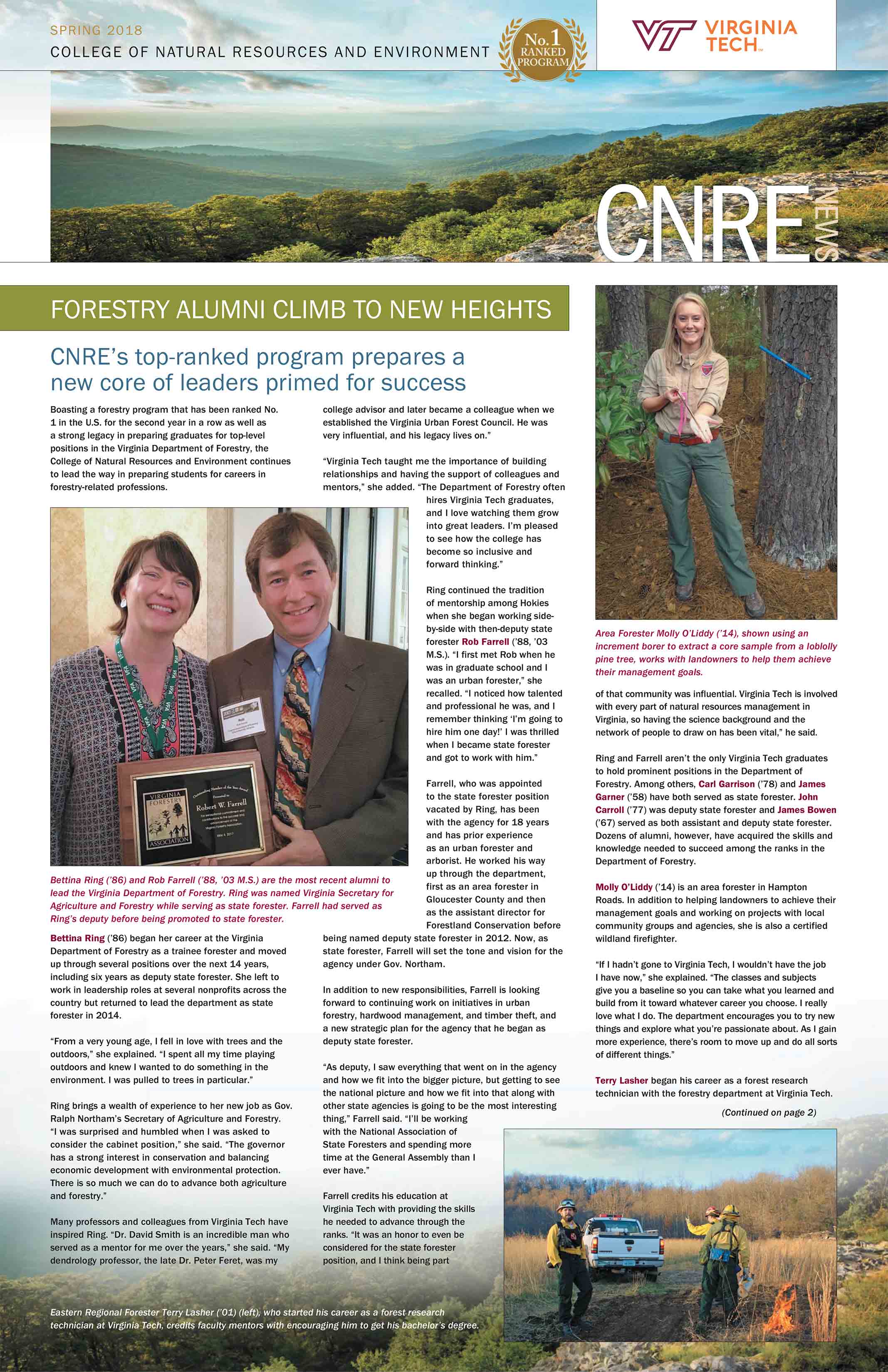Team creates system to forecast water quality
May 15, 2018
A man and a woman in a small boat on a lake

Two college faculty members have joined with ecologists, social scientists, geologists, and engineers to create a system that will help accurately predict drinking water quality. The team was awarded a $1 million National Science Foundation Smart and Connected Communities grant to develop a system that can create a real-time water forecast for Falling Creek Reservoir near Roanoke, Virginia.
The system will collect multiple real-time environmental datasets, such as levels of metals in the water, presence of aquatic life, and oxygenation levels from current treatment, and use these data, along with local weather predictions and a state-of-the-art reservoir model, to forecast future water quality.
The system is based on a similar technique that forecasts forest growth in light of global change. Assistant Professor Quinn Thomas designed that technique and will implement it in this project as well. The system will transmit data to a cloud-based network available to scientists and water utility managers. “Our goal is to create probabilistic forecasts of water quality, similar to a ‘20 percent chance of rain’ weather forecast,” Thomas said.
Associate Professor Michael Sorice, an expert in the study of human dimensions of natural resource management, is tackling another facet of the project: researching the best way to ensure the forecasts will be integrated into management decisions. He will engage with water managers to understand current practices and how the new scientific data and technology could best be implemented into daily tasks. In addition, he will examine public perceptions of this new technology and its effect on public trust in the water authority.



